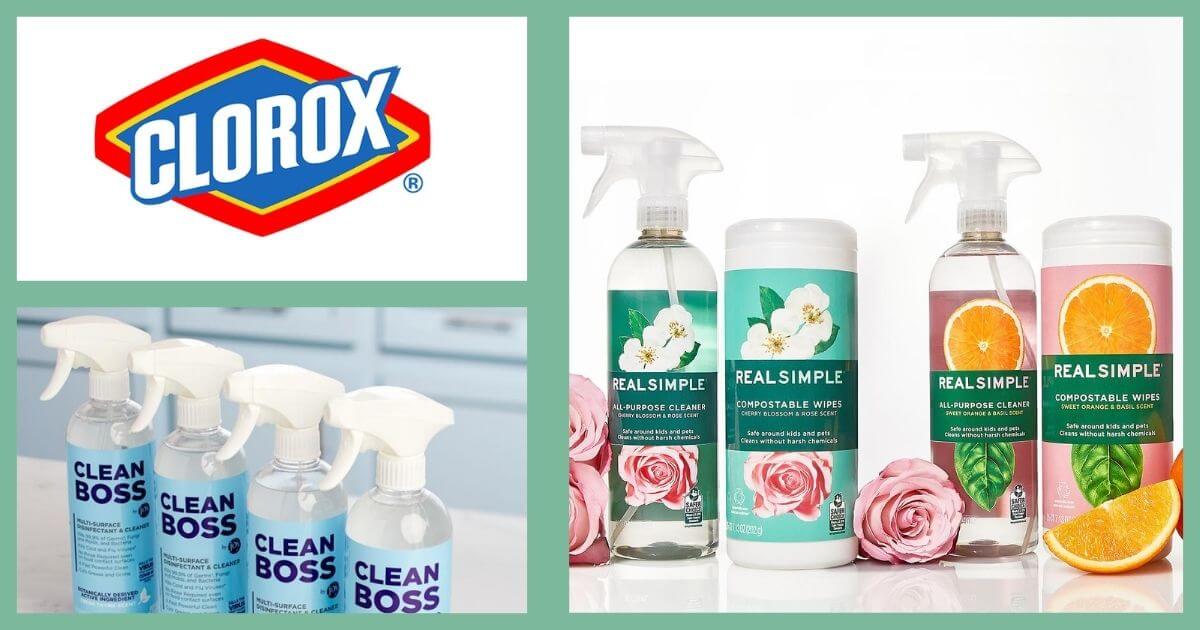Cleaning Product Brands Continue to Shine

Brands and products related to cleaning and sanitation have seen their profiles rise in the past 18 months, and the momentum continues strong. While most expect the rate of cleaning products’ pandemic-driven sales increases to ease somewhat, consumer consciousness of the brands is at a new level.
Clorox, for example, is positioning itself as both licensor and licensee. Hamilton Beach recently licensed the Clorox brand for air purifiers starting in 2022 (supplementing the line it’s already marketing under its own label). At the same time, Clorox is licensing Meredith Corp.’s Real Simple brand for an all-purpose cleaner and compostable wipes. Clorox launched the line at the 93-store Container Store chainwide and online in August.
And although some brands remain on the sidelines for licensing – Gojo Industries has yet to license out its Purell brand available despite its high profile as a sanitizer – that appears to be the exception not the rule.
Demand for sanitation products is expected to ease from last year’s peak, but remain above pre-pandemic levels, especially given that cleanliness is increasingly being seen in a broader context. “That’s true here in the U.S. but really around the world, said Clorox CEO Linda Rendle. “People are adopting cleaning as more of a thing around safety and wellness, not just a chore.”
Crossover appeal
The crossover between cleaning brands and health and wellness is readily apparent. For example, U.S. sales of air purifiers — are forecast to increase 12% annually during each of the next five years, followed by diffusers (9%) and hand sanitizers (8.5%), says LMCA President Ciaran Coyle, whose firm recently signed to represent Miracle Mop inventor Joy Mangano. Indeed, Clorox is producing record volumes of wipes with demand that is “five times what we normally encounter,” a trend that is showing little sign of easing, says the company’s Chief Supply Officer, Andy Mowery.
One study forecasts the global household cleaning products business to grow 4.5% annually through 2028 to $320.8 billion. It projects that sales of standalone residential air purifiers will grow 6% annually through 2027 to $13 billion. U.S. air purifier sales in 2020 more than doubled from a year earlier to $947 million, according to NPD.
Sales of cleaning products are expected to further benefit from the work from home trend. About 20% of the U.S. workforce is expected to work remotely post-pandemic against 5% before it, which “bodes well for the industry,” P&G CEO David Taylor told analysts recently.
Coyle contrasts sanitation products with another category that got a boost from COVID. “When we come out of this pandemic, people may not be buying the same number of masks,” says Coyle. “But they will still buying more cleaning products, because the pandemic focused them on the category,” which provides new opportunities for licensing.
LMCA will bring Mangano’s CleanBoss brand (CleanBoss by Joy) into licensing for the first time, targeting wipes, facial and toilet bowl cleaners, air purifiers and dehumidifiers as her visibility ramps up.
Mangano, who introduced the tangle-free Miracle Mop in the early 1990s, launched CleanBoss cleaning solutions last November and pitched it this summer on Home Shopping Network. She’s also producing the reality TV series “America’s Big Deal” that will give inventors a chance to sell their products when it launches on USA Network in October. Mangano also was the subject of the 2015 film Joy, which is being developed as a stage show that’s due late 2022.




